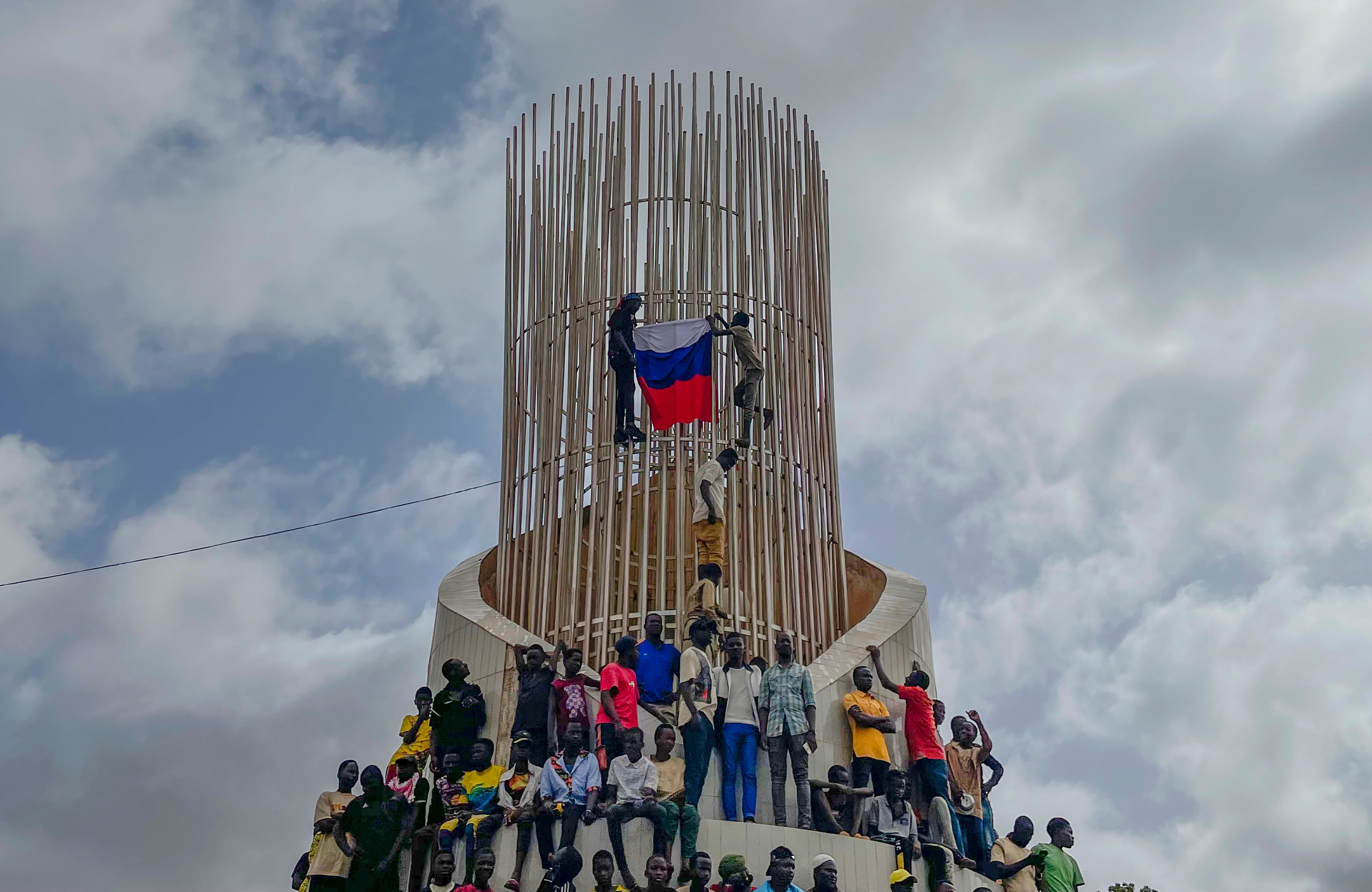Niger’s junta rulers ask for help from Russian group Wagner as it faces military intervention threat
An analyst says Niger’s new military junta has asked for help from the Russian mercenary group Wagner as the deadline nears for it to release the country’s ousted president or face possible military intervention by the West African regional bloc

Niger’s new military junta has asked for help from the Russian mercenary group Wagner as the deadline nears for it to release the country’s ousted president or face possible military intervention by the West African regional bloc, according to an analyst.
The request came during a visit by one of the coup leaders, Gen. Salifou Mody, to neighboring Mali, where he made contact with someone from Wagner, Wassim Nasr, a journalist and senior research fellow at the Soufan Center, told The Associated Press. He said three Malian sources and a French diplomat confirmed the meeting first reported by France 24.
“They need (Wagner) because they will become their guarantee to hold onto power,” he said, adding that the group is considering the request.
Niger’s junta faces a Sunday deadline set by the regional bloc known as ECOWAS to release and reinstate the democratically elected President Mohamed Bazoum, who has described himself as a hostage.
Defense chiefs from ECOWAS members finalized an intervention plan on Friday and urged militaries to ready resources after a mediation team sent to Niger on Thursday wasn’t allowed to enter the city or meet with junta leader Gen. Abdourahmane Tchiani.
After his visit to Mali, run by a sympathetic junta, Mody warned against a military intervention, vowing that Niger would do what it takes not to become “a new Libya,” Niger’s state television reported Friday.
Niger has been seen as the West’s last reliable counterterrorism partner in a region where coups have been common in recent years. Juntas have been rejecting former colonizer France and turning toward Russia. Wagner operates in a handful of African countries, including Mali, where human rights groups have accused its forces of abuses.
One can't say there's any direct implication of Russia in Niger's coup, but “clearly, there's an opportunistic attitude on the part of Russia, which tries to support destabilization efforts wherever it finds them,” French foreign affairs ministry spokeswoman Anne-Claire Legendre told broadcaster BFM on Friday. Days after Niger's junta seized power, residents waved Russian flags in the streets.
The spokeswoman described Wagner as a “recipe for chaos.”
On Saturday, France’s foreign affairs minister, Catherine Colonna, said the regional threat of force was credible and warned the putschists to take it seriously. “Coups are no longer appropriate ... It’s time to put an end to it,” she said. The ministry said France supports “with firmness and determination” the ECOWAS efforts to make sure the coup leaders fail, and it called for Bazoum and all members of his government to be freed.
Niger’s military leaders have been following the playbook of Mali and neighboring Burkina Faso, also run by a junta, but it’s moving faster to consolidate power, Nasr said: “(Tchiani) chose his path, so he’s going full on it without wasting time because there’s international mobilization.”
One question is how the international community will react if Wagner is brought in, he said. When Wagner came into Mali at the end of 2021, the French military was ousted shortly afterward after years of partnership. Wagner was later designated a terrorist organization by the United States, and international partners might have a stronger reaction now, Nasr said.
And much more is at stake in Niger, where the U.S. and other partners have poured hundreds of millions of dollars of military assistance in efforts to combat the region’s growing jihadi threat. France has 1,500 soldiers in Niger, though coup leaders say they have severed security agreements with Paris, and the U.S. has 1,100 military personnel in the country.
“At the moment, there’s no real indication that the (junta) is going to soften its tone or make concessions ahead of the deadline,” said Andrew Lebovich, research fellow with the Clingendael Institute and postdoctoral fellow with the Danish Institute for International Studies, saying an intervention "potentially serious consequences for Niger and for the region.”
It’s unclear what an intervention would look like or when it would begin. Niger’s junta has called on the population to watch for spies, and self-organized defense groups have mobilized at night to monitor cars and patrol the capital.
Any intervention is fraught with risk, said a report by the Hudson Institute. “If the junta were to dig in its heels and rally the populace around the flag — possibly even arming civilian militias — the intervention could morph into a multifaceted counterinsurgency that ECOWAS would not be prepared to handle,” it said.
While some in Niger are bracing for a fight, others are trying to cope with travel and economic sanctions imposed by ECOWAS after the coup. The sanctions have closed land and air borders with ECOWAS countries and suspended commercial and financial transactions with member states.
Residents said the price of goods is rising and there’s limited access to cash.
“We are deeply concerned about the consequences of these sanctions, especially their impacts on the supply of essential food products, pharmaceuticals, medical equipment, petroleum products and electricity,” said Sita Adamou, president of Niger’s Association to Defend Human Rights.
___
Associated Press reporter Sylvie Corbet in Paris contributed.
Bookmark popover
Removed from bookmarks